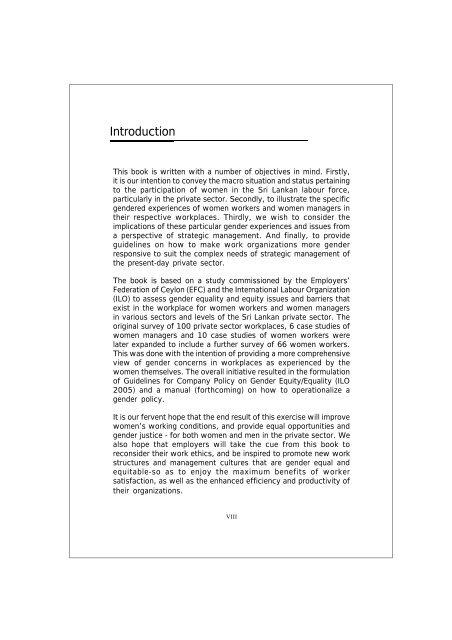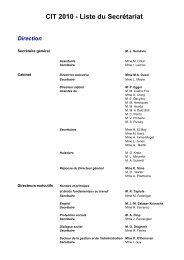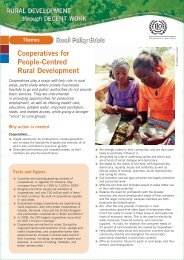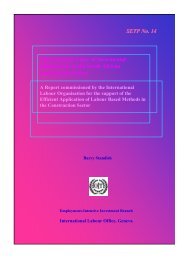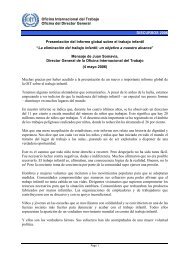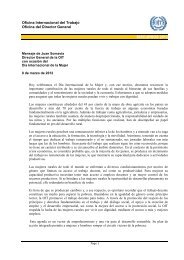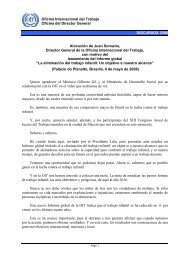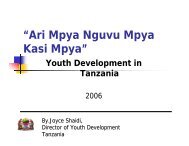Beyond Glass Ceilings and Brick Walls - International Labour ...
Beyond Glass Ceilings and Brick Walls - International Labour ...
Beyond Glass Ceilings and Brick Walls - International Labour ...
You also want an ePaper? Increase the reach of your titles
YUMPU automatically turns print PDFs into web optimized ePapers that Google loves.
Introduction<br />
This book is written with a number of objectives in mind. Firstly,<br />
it is our intention to convey the macro situation <strong>and</strong> status pertaining<br />
to the participation of women in the Sri Lankan labour force,<br />
particularly in the private sector. Secondly, to illustrate the specific<br />
gendered experiences of women workers <strong>and</strong> women managers in<br />
their respective workplaces. Thirdly, we wish to consider the<br />
implications of these particular gender experiences <strong>and</strong> issues from<br />
a perspective of strategic management. And finally, to provide<br />
guidelines on how to make work organizations more gender<br />
responsive to suit the complex needs of strategic management of<br />
the present-day private sector.<br />
The book is based on a study commissioned by the Employers’<br />
Federation of Ceylon (EFC) <strong>and</strong> the <strong>International</strong> <strong>Labour</strong> Organization<br />
(ILO) to assess gender equality <strong>and</strong> equity issues <strong>and</strong> barriers that<br />
exist in the workplace for women workers <strong>and</strong> women managers<br />
in various sectors <strong>and</strong> levels of the Sri Lankan private sector. The<br />
original survey of 100 private sector workplaces, 6 case studies of<br />
women managers <strong>and</strong> 10 case studies of women workers were<br />
later exp<strong>and</strong>ed to include a further survey of 66 women workers.<br />
This was done with the intention of providing a more comprehensive<br />
view of gender concerns in workplaces as experienced by the<br />
women themselves. The overall initiative resulted in the formulation<br />
of Guidelines for Company Policy on Gender Equity/Equality (ILO<br />
2005) <strong>and</strong> a manual (forthcoming) on how to operationalize a<br />
gender policy.<br />
It is our fervent hope that the end result of this exercise will improve<br />
women’s working conditions, <strong>and</strong> provide equal opportunities <strong>and</strong><br />
gender justice - for both women <strong>and</strong> men in the private sector. We<br />
also hope that employers will take the cue from this book to<br />
reconsider their work ethics, <strong>and</strong> be inspired to promote new work<br />
structures <strong>and</strong> management cultures that are gender equal <strong>and</strong><br />
equitable-so as to enjoy the maximum benefits of worker<br />
satisfaction, as well as the enhanced efficiency <strong>and</strong> productivity of<br />
their organizations.<br />
VIII


